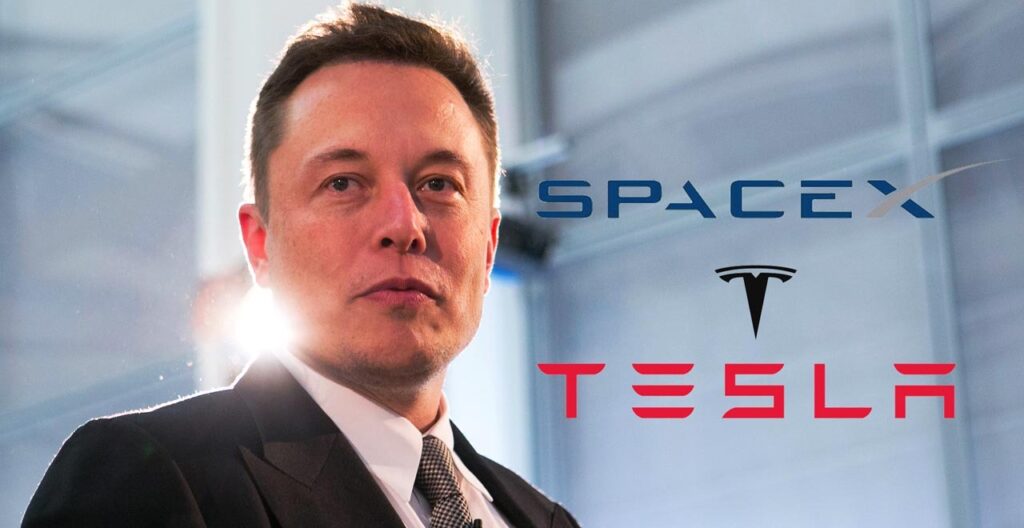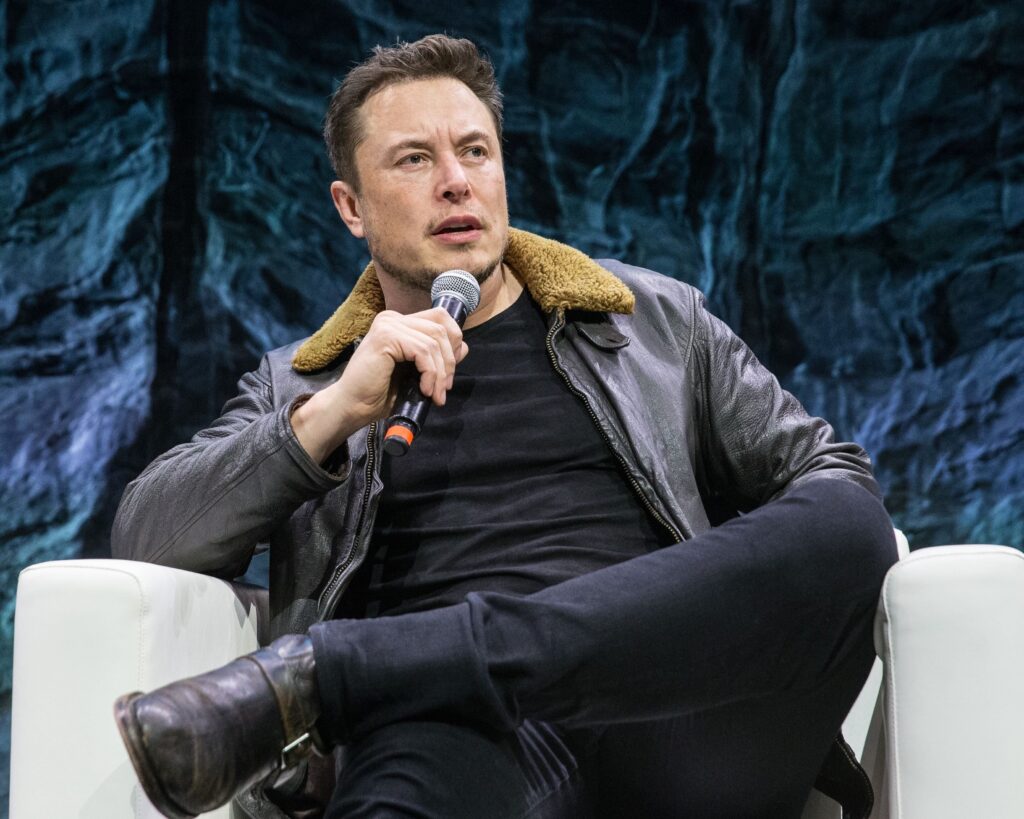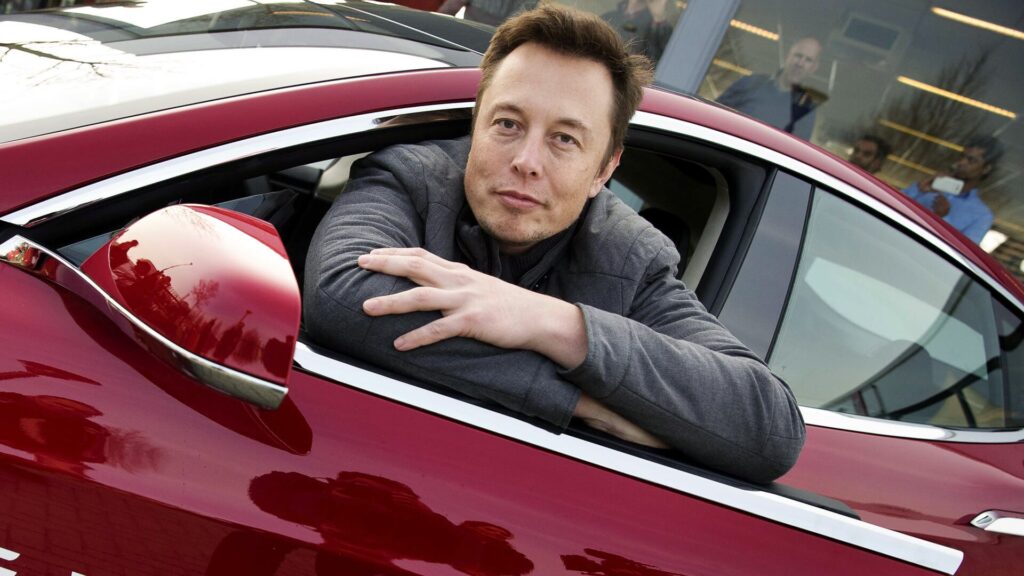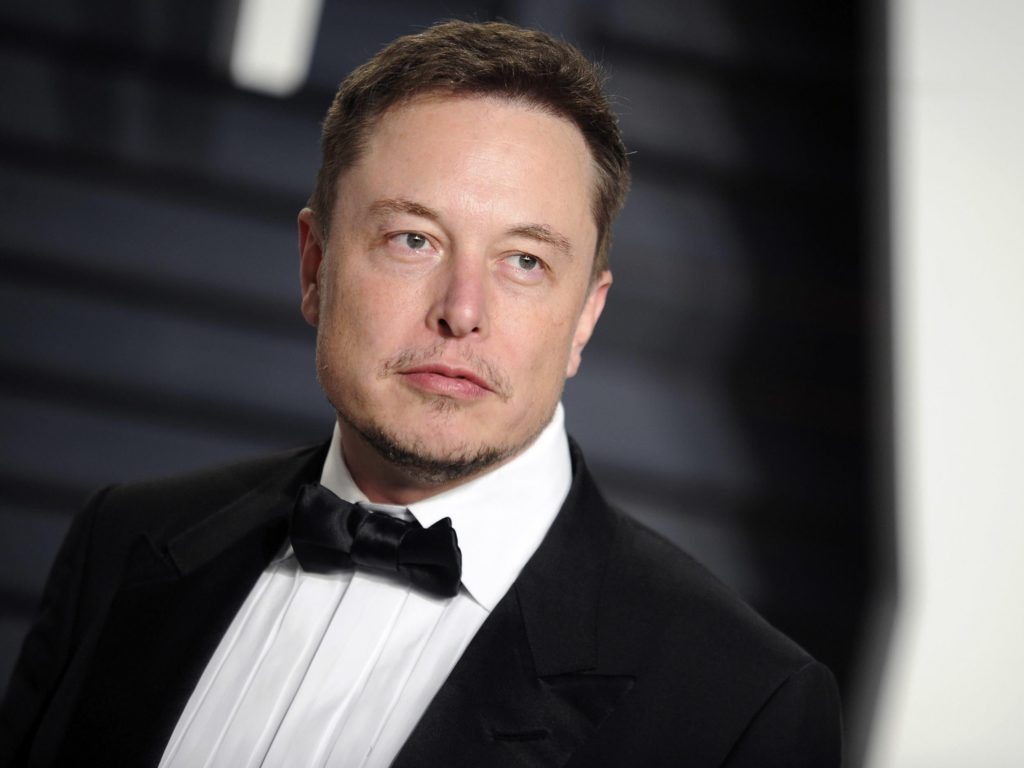Elon Musk’s tale fascinates me since I’ve followed many successful businesspeople worldwide. Elon Musk net worth is often a trending topic among financial analysts, tech enthusiasts, and even casual news consumers. He is famed in business for his innovative and hazardous business practices.
Musk has worked on autos, space travel, renewable energy, and AI. Each venture he embarks on seems to push the boundaries of what we believe is possible. But beyond the headlines and the excitement, it’s also fascinating to delve into the monetary side of things – the concept of net worth.
Net worth, in simple terms, is a measure of financial health. It’s the value you get when you subtract any liabilities from the total value of an individual’s assets. In the context of Elon Musk, this calculation becomes a bit more complex, considering the vast number of businesses he’s involved in and the fluctuating values of these entities.
This article will examine Musk’s extensive collection and how it impacts his net worth compared to other billionaires.
Glimpse into Musk’s Childhood and Education
Elon Musk was born in Pretoria, South Africa, on June 28, 1971. His mother was Canadian, and his father was South African. From a young age, he was interested in learning and eager to do so. As a child, he developed an interest in computing, and by the age of 12, he had coded and sold his first software – a game named Blastar.
Musk’s schooling combines self-learning and conventional education. He attended Pretoria Boys High School before moving to Canada at 17 to attend Queen’s University. After moving to Pennsylvania, he got bachelor’s degrees in physics from the College of Arts and Sciences and economics from the Wharton School of Business.
The Entrepreneurial Spark: Musk’s Initial Ventures and Early Career
After completing his studies, Musk’s entrepreneurial journey began in earnest. In 1995, he and his brother Kimbal started Zip2, a city guide software company, with a small amount of seed money from their father. The brothers faced numerous challenges initially, including living in their office and showering at the local YMCA to save money. However, their persistence paid off when Compaq acquired Zip2 for $307 million in 1999.
Following the success of Zip2, Musk founded X.com, an online payment company, in 1999. X.com was later renamed PayPal after its merger with Confinity in 2000. Despite initial mistrust and several obstacles, PayPal has become one of the most extensively used and effective online payment systems. In 2002, eBay bought PayPal for $1.5 billion, another career-turning moment for Musk.
From Zip2 to PayPal, each new startup taught him about entrepreneurship and prepared him for work in electric automobiles and space exploration.
From Electric Cars to Rockets: SpaceX and Tesla

When we think about Elon Musk, two companies immediately emerge: SpaceX and Tesla. Each represents a different facet of Musk’s vision for the future, and together, they form the cornerstone of his business empire.
SpaceX
SpaceX, or Space Exploration Technologies Corp, was born out of Musk’s fascination with space travel and his belief in the necessity of making life multi-planetary. Founded in 2002, SpaceX’s goal was audacious: revolutionizing space technology and making space travel more accessible. I remember being skeptical at first, as were many others.
Government entities and established aerospace corporations had long dominated the space industry. Breaking into this industry as a private company seemed a daunting, if not impossible, task. However, Musk proved the skeptics wrong.
Through innovation, risk-taking, and sheer determination, SpaceX has achieved numerous significant milestones, including the first privately funded liquid-propellant rocket (Falcon 1) to reach orbit and the first privately funded company to send a spacecraft (Dragon) to the International Space Station.
Tesla
On the other hand, Tesla represents Musk’s commitment to combating climate change through sustainable energy solutions. When Musk became involved with Tesla Motors in 2004, electric vehicles (EVs) were far from mainstream. Many viewed them as impractical and doubted their viability as replacing traditional gasoline-powered cars. But Musk saw potential.
Tesla CEO Elon Musk steered the company towards his vision of an all-electric future, starting with high-end sports cars like the Roadster and gradually moving towards more affordable models like the Model 3. Today, Tesla is not just a car manufacturer; it’s a trailblazer in the EV industry, setting standards in range, performance
Financial Success of These Companies
Financially, both SpaceX and Tesla have proven to be immensely successful. Despite the inherent risks and high costs associated with their respective industries, they’ve managed to carve out profitable niches. SpaceX’s revenue comes from commercial launch contracts, NASA contracts, and, increasingly, broadband internet service through its Starlink satellites. On the other hand, Tesla’s revenue is primarily derived from car sales, although its energy generation and storage segment is also growing rapidly.
Beyond Rockets and Electric Cars: Musk’s Diverse Business Portfolio

While SpaceX and Tesla are undoubtedly the most well-known of Elon’s ventures, his entrepreneurial pursuits extend further. His portfolio is as diverse as it is ambitious, spanning industries from renewable energy to neuroscience and infrastructure.
Let’s delve into other ventures that showcase Musk’s innovative spirit and commitment to addressing humanity’s biggest challenges.
SolarCity
As someone deeply passionate about sustainable energy, I’ve been particularly interested in SolarCity. This venture aligns closely with Musk’s vision for a sustainable future. Acquired by Tesla in 2016, SolarCity was once the largest provider of solar power systems in the United States.
Today, it is part of Tesla Energy, focusing on solar energy services and products. The mission from solar panels to solar roofs is clear: to provide affordable, clean energy to homes and businesses.
SolarCity, now a part of Tesla, has played an integral role in Elon Musk’s net worth growth. As a key component of Tesla Energy, SolarCity’s renewable energy products and services contribute to Tesla’s overall revenue. And as the world continues to shift towards sustainable energy, this sector’s growth potential remains enormous.
➡Neuralink
This venture takes us into the realm of neuroscience. Neuralink aims to develop ultra-high bandwidth brain-machine interfaces to connect humans and computers. The goal is to help humans keep pace with AI by enhancing cognitive function and addressing neurological disorders.
As an AI enthusiast, I find this venture incredibly fascinating. It pushes the boundaries of what we perceive as possible and opens up new realms of potential for human cognition and health.
Neuralink, while still in its early stages, represents an investment in a future where technology can enhance human cognition. Even though it may not currently contribute significantly to Musk’s wealth, the potential value of this venture is immense. If Neuralink succeeds in its mission, it could revolutionize the field of neuroscience and create an entirely new industry, thereby contributing significantly to Musk’s wealth.
➡The Boring Company
Infrastructure might seem like a departure from Musk’s other ventures, but not when you understand the problem he’s trying to solve. The Boring Company aims to combat traffic congestion in major cities by creating a network of underground tunnels for transportation. It’s another instance of Musk identifying a widespread problem – in this case, traffic – and devising an innovative solution.
Despite being one of Musk’s newer ventures, the company has already made headlines with high-profile projects in cities like Las Vegas. Its innovative approach to urban transport could transform the infrastructure industry and generate substantial revenue.
Elon Musk Net Worth
Elon Musk is estimated to be worth $241 billion, making him the 11th-richest person in the world according to Forbes’ 2021 billionaires list. He is the richest man in the world now, overtaking Amazon founder Jeff Bezos net worth of $152.1 Billion.
Musk’s immense wealth is largely due to his ownership stakes in Tesla and SpaceX. He owns about 20% of Tesla, which made him a billionaire when it went public in 2010, and he also holds a 54% stake in SpaceX. Additionally, he has investments in numerous other companies, including SolarCity, Neuralink, and The Boring Company.
The incredible success of these ventures has enabled Musk to amass a considerable fortune over the last two decades. His dedication to innovation and commitment to addressing humanity’s biggest challenges have resulted in revolutionary products that have revolutionized space exploration, electric vehicles, and many other industries.
Factors Behind Fluctuations in His Net Worth
Understanding the wealth fluctuations of Elon Musk requires a deep dive into the dynamic world of business, innovation, and market sentiment.
From my perspective of Musk’s career, these fluctuations are not random. They represent the interplay of several key factors:
✔Stock Market Performance: Most of Musk’s wealth is tied to his company shares, particularly Tesla and SpaceX. As such, the performance of these companies’ stocks on the market directly impacts their net worth. When Tesla’s stock price soars, so does Musk’s total net, and vice versa.
✔Company Milestones: Achievements and milestones reached by Musk’s companies also significantly influence his net worth. For instance, when Elon Musk buy Twitter for $44 Billion, SpaceX successfully launches a mission or Tesla unveils a new product, it can increase investor confidence and companies’ stock values.
✔Investor Sentiment: Investor sentiment plays a crucial role in the stock market and, by extension, the businessman’s net worth. Various factors can influence this sentiment, from general economic conditions to news about Musk’s companies or even Musk’s public statements and actions.
✔Debt and Liabilities: Musk has leveraged his assets to fund ventures like many billionaires. This debt can lead to decreases in net worth if the liabilities outweigh the assets or if there is a downturn in the value of the collateral assets.
✔Market Volatility: The stock market is inherently volatile, with prices constantly fluctuating based on many factors. This volatility can lead to short-term changes in Musk’s total net income, even if the long-term trend is upward.
Philanthropy and Spending Habits

When discussing Elon’s net worth, it is critical to factor in his philanthropic endeavors. Musk has consistently committed to using a portion of his wealth to fund various causes that align with his vision for the future. In 2021 alone, he donated Tesla shares valued at $5.7 billion to charity, a significant sum even for someone of Musk’s wealth.
These charitable donations, while remarkable, do have an impact on the CEO’s net worth. When he donates shares from his companies, the value of those shares is deducted from his overall wealth. However, this does not seem to deter Musk. His philanthropic actions highlight a willingness to leverage his wealth for the greater good, even if it means a temporary dip in his net worth.
Musk’s approach to philanthropy is distinctive. He often keeps the beneficiaries of his donations private, which can lead to speculation and intrigue. Nevertheless, the magnitude of his giving is undeniable. It’s a testament to his belief in using his wealth to drive change and innovation, underscoring that net worth is not just about accumulation but also contribution.
A Glimpse into Musk’s Spending Habits
Musk’s spending habits provide another interesting perspective on his net worth. Despite his immense wealth, Musk doesn’t fit the stereotype of a free-spending billionaire. He has been relatively reserved about his expenditures, focusing on investing in his businesses and philanthropic causes.
Musk does make significant investments where he sees value or necessity. It is evident in the resources he commits to his companies and his willingness to fund ambitious projects that align with his vision for the future.
It’s also worth noting that Musk’s spending habits can indirectly affect his net worth. For instance, any personal debt incurred or assets purchased can impact his financial status. However, from what we know of Musk, his primary financial focus seems to be his business ventures and philanthropic endeavors rather than personal extravagance.
The Billionaire Benchmark: Comparison with Other Billionaires
As of today’s, Elon’s total money is an estimated $241 billion, according to Bloomberg’s Billionaires Index. This staggering amount places him at the top of the global wealth ranking, surpassing other billionaires significantly.
When we compare the Tesla’s CEO net worth with other billionaires, the scale of his wealth becomes even more apparent. For instance, Bernard Arnault, the second-richest person in the world, is estimated to have a net worth of $186 billion. That’s $55 billion less than Musk, despite Arnault’s considerable wealth.
Jeff, the founder of Amazon and another prominent figure in the tech industry, has a net worth of $162 billion that falls short of Musk’s. Similarly, Bill Gates, co-founder of Microsoft, and Warren Buffet, the legendary investor and chairman of Berkshire Hathaway, both have net worth that are considerably lower than Musk’s.
What Sets Musk Apart from Other Billionaires
What sets Elon Musk apart from other billionaires is his enormous net worth and how he has amassed and used his wealth. Unlike many billionaires who have built their fortunes through a single company or industry, Musk has diversified his interests across multiple sectors.
Furthermore, Musk’s approach to wealth is distinctive. He sees his fortune not as an end but as a means to achieve his visionary goals. Whether making life multi-planetary or accelerating the transition to sustainable energy, Musk is leveraging his wealth to tackle some of humanity’s biggest challenges.
It’s also worth noting that Elon Musk’s net worth is largely tied to his companies’ stocks. It means his wealth is not just a reflection of his success but also the success and potential of his companies.
In my view, what truly sets Musk apart is this combination of visionary ambition, entrepreneurial prowess, and a willingness to risk his wealth for his beliefs. It’s a potent mix that has propelled him to the top of the global wealth rankings and made him one of the most influential figures in the world today.
Frequently Asked Questions
Q: What is Musk’s daily routine?
A: The businessman’s daily routine is incredibly disciplined, reflecting his intense work ethic. He reportedly works an average of 80 to 90 hours weekly, splitting his time between his various ventures, primarily Tesla and SpaceX. His day usually begins with a series of critical emails, followed by a series of meetings. Despite his busy schedule, Musk ensures to spend time with his family, typically in the evening. He has also occasionally found time for personal pursuits, such as reading and gaming. However, it’s important to note that Musk’s routine is not static and can change based on the needs of his businesses.
Q: What are some notable things Elon Musk has done with his wealth?
A: Elon Musk has utilized his wealth in several significant ways. One notable aspect is his investment in companies like SpaceX and Tesla to further their goals. He’s also known for his philanthropic efforts, donating sizeable portions of his wealth to various charities and causes. In 2021, he donated Tesla shares worth $5.7 billion to charity. Additionally, Musk has pledged to sell most of his possessions, including his homes, to fund his vision of colonizing Mars. His spending habits, though atypical for a billionaire, reflect his commitment to his broader vision for the future.
Q: What is Elon Musk 5 minute rule?
A: Elon Musk’s 5-minute rule is a time management strategy he uses to maximize productivity during meetings. According to this rule, if no valuable exchange of information is happening in a meeting within the first five minutes, Musk encourages participants to leave. He believes in not wasting time on ineffective meetings, seeing them as a major impediment to productivity.
Q: What is Elon Musk’s time management strategy?
A: Elon Musk’s time management strategy is highly structured and disciplined, designed to maximize productivity. He reportedly utilizes a modified “time blocking” method, dividing his day into five-minute slots. Each slot is assigned a specific task or activity, eliminating wasted time and maintaining focus. Musk also emphasizes the importance of multitasking, often combining eating or exercise with meetings or work. Lastly, he practices ‘batching’ similar tasks to streamline his workflow. His approach emphasizes efficiency and productivity, allowing him to manage multiple enterprises simultaneously.
Final Thoughts
In exploring the net worth of Elon Musk, we’ve journeyed through the landscape of his diverse business ventures, delved into the impact of stock market trends, touched upon his philanthropic endeavors, and even compared his fortune with other Bloomberg billionaires. What emerges from this journey is a portrait of a man who is not just a billionaire but also a visionary, an innovator, and a risk-taker.
As we continue to observe Musk’s career, I believe there are valuable lessons we can learn about entrepreneurship, innovation, and the power of big thinking. His journey serves as a reminder that wealth can be more than just a measure of financial success; it can also be a vehicle for change, a catalyst for innovation, and a means to make a lasting impact on the world.
I hope you found this deep dive into this billionaire’s net worth insightful and thought-provoking. I’m eager to hear your thoughts on this topic. Do you think Musk’s approach to wealth is unique among billionaires? How do you see his net worth impacting his future initiatives? Please share your thoughts in the comments section below. Let’s keep the conversation going!
